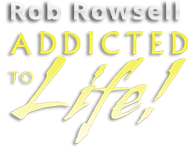Wealthy Real Estate Investor Rob Rowsell is here today to share his ultimate tax saving secrets in part one of this two part series. Let’s all watch and read on to learn the first two out of four tips. Do you want to make the absolute most out of all of your investments and avoid the dreaded scourge called tax drag? Well then, this series is definitely for you! Let’s go!
 Rob’s Tax Saving Secrets Revealed, 1 and 2
Rob’s Tax Saving Secrets Revealed, 1 and 2
Rob starts off the clip by defining the often discussed concept of “tax drag”. Tax drag is the wealth draining resistance that your taxes can make on both investments and earnings. Not only can it cost you cash today, it can also rob you of potential future compounded earnings from all of those lost dollars.
How can you as an investor get ahead of this disturbing trend? First of all, you will need to start meeting with your accountant on a regular basis. Specifically, scheduling a September meeting with them to report the financial moves you’ve made thus far in the year is a great idea. Once your CPA is aware of those moves, then they can help you formulate strategies in the remaining three months. These strategies will help you to minimize the taxes you will owe at the end of the fiscal year.
Save On Taxes By Emphasizing Structure Over Deduction
The first of Rob’s tax saving secrets we will discuss is Structure Over Deduction. All of us will look for deductions when it is tax time. If you are not also structuring how your money is handled during all twelve months of the year, then you will not need to lean so heavily on those deductions in April.
One example of this strategy is to make sure that you pay yourself tax efficiently. Rob’s financial advisor once estimated that he should be earning a salary within a wide range. By paying himself on the low end of that proposed dollar range, Rob is being conservative monetarily. Remember, when it comes to paying your own taxes, you are in charge. You are the quarterback on the field!
Rob Defines The Concept Of Tax Rate Arbitrage
Tax Rate Arbitrage is another one of Rob’s favorite structuring tools in his tax saving secrets toolbox. Rob decided at one point that he would form a management company structured as a C Corporation. That C Corp received a fee from both his real estate and automotive repair businesses for the services that they rendered. The C Corp was taxed much more efficiently than any of his other businesses were. Therefore, he saved himself money on taxes all around. Entities such as a C Corporation exist for just two reasons: in order to protect your assets, and to save you money on your taxes.
What Does It Mean When You Plan Your Exit Before You Go In?
Another essential financial structure strategy is when you Plan Your Exit Before You Go In. In the real estate business, most investors’ end game is an obvious one. You may have a written three to five year plan in place for your multi-family property investments. Whatever amount of money you choose to invest in each of them will help your tax advisor to give you the best advice. That means they will show you how you can structure your businesses to save on taxes.
Tax Saving Secrets Continued: Invest Your Saved Taxes Efficiently
Rob continued with a game changing hack that you can apply today! Savvy tax planning is the absolute lowest risk way to immediately boost your return on investment. That strategy means knowing what your investing end game is. Savvy tax planning also includes deciding which wealth bucket you will be investing money from.
Generally, your long term capital growth investments will go straight to your taxable accounts. This is because they are not taxed at the government’s highest rates. “Ordinary income” cash flow investments will go in tax advantaged accounts instead. Rob used an example from his own investment history. He once made a short term loan to some house flippers in his investing network. Since he used a sum of money from his own Roth IRA account, he was not taxed on that loan amount. Also, the returns from that investment could go right back into his retirement fund. That way, those returns could continue compounding.
Conclusion: Money Saved On Taxes Is A Revenue Stream
Remember, all of the money you save on taxes can be counted as a revenue stream! Once again, tax drag is the polar opposite of a revenue stream. It is lost income from the annual taxes that you pay. What if you had not paid those taxes? Then you could have made compound returns by investing those funds over a period of time.
Join Our Real Estate Investment Community Today!
Have you invested funds in multi-family rental properties? If not, do you aspire to do so one day? Then you should definitely consider joining our online discussion group, the ATL Inner Circle Community! Each and every month, Rob Rowsell will teach you what you must do so you too can build wealth in the real estate business. It is not as easy as it looks! Property taxes, liens, and legal fees can all be hard to navigate. Therefore, having a successful guide in your corner like Rob is a must! Sign up today!

 Rob Explains Blended Tax Rate For Real Estate Investors
Rob Explains Blended Tax Rate For Real Estate Investors Retirement Expenses Explained
Retirement Expenses Explained